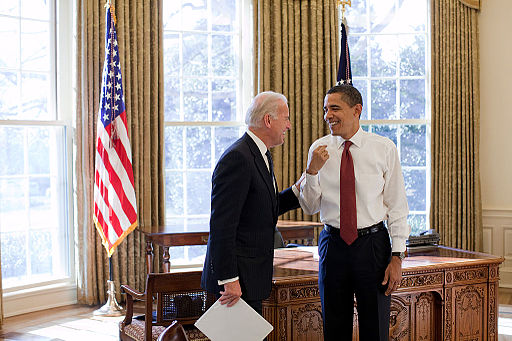When it comes to sex work, the topic doesn’t usually come up in the democratic debates. If we dig a little deeper, however, there are ways where the issue has come into play.
FOSTA-SESTA is one of the primary ways in which sex work has been addressed/”addressed” by politicians. The bill was signed into law by President Trump in 2018 with the stated intent of targeting sex traffickers, but it’s had many unintended — or, perhaps intended — consequences.
FOSTA-SESTA and Sex Workers (So Far)
Like all laws, FOSTA-SESTA made the rounds of government before it was actually made official.
The House bill known as FOSTA (Fight Online Sex Trafficking Act) and the Senate bill SESTA (Stop Enabling Sex Traffickers Act) were both “hailed by advocates as a victory for sex trafficking victims” — while also poking a huge hole in a famous and longstanding “safe harbor” rule of the internet: Section 230 of 1996’s Communications Decency Act.
Section 230 said that, “No provider or user of an interactive computer service shall be treated as the publisher or speaker of any information provided by another information content provider.” FOSTA-SESTA came in and created an exception, however, that stated that website publishers would be responsible if third parties were posting ads for prostitution — including consensual sex work — on their platforms.
So now, FOSTA-SESTA holds websites accountable for sex trafficking done on any site, as well as any and all sex work that occurs on a platform. Though sex trafficking and sex work are wildly different, many websites have banned sex work or promotion altogether. It’s a big reason why platforms like Tumblr suddenly began kicking sex workers off of a place where they once had an established base or why bots and mods crawl platforms with chat functions looking for language that may indicate a sex work exchange (even fantasy).
When it comes to its actual intended consequence, the law is an outright failure. There is absolutely no proof that any sex traffickers have been caught or stopped. But when it comes to sex work and unintended-though-possibly-intended consequences, since the ability to work online is now severely limited, there has been a marked decrease in safety, security and viability.
So, will the law be repealed?
The future of FOSTA-SESTA is ultimately going to come down to who is elected later this year. President Trump is unlikely to remove the law as his base has held firm that the law is working, despite having no facts to show that that’s the case.
Unfortunately, most of the Democratic candidates aren’t much better/different. Here’s how the current candidates feel about the law, according to VICE back in June, 2019.
In Support of FOSTA-SESTA
Bernie Sanders is in support of the law, and so is Elizabeth Warren, Cory Booker, Amy Klobuchar and Tulsi Gabbard. It should also be noted that, not only does Klobuchar support FOSTA-SESTA, but she’s also co-sponsor of the bill.
Unclear (because they have never said)
The stances of Pete Buttigieg, Joe Biden, Andrew Yang, Micheal Bloomberg and Julian Castro on the issue remain unclear as they have never addressed it or answered questions in regards to it.
Opposed to FOSTA-SESTA
Unfortunately, the only candidate the opposed the bill was Mike Gravel, who dropped out of the race.

Amy Klobuchar
What about the decriminalization of sex work?
The decriminalization of sex work has been a major gray area for most of the candidates. Virtually none of the current candidates have said outright if they believe in decriminalizing sex work. Cory Booker and Tulsi Gabbard are for the decriminalization. Mike Gravel also supported the decriminalization, making him the only candidate that was both against FOSTA-SESTA and for decriminalization, but, again, he’s already out.
Everyone else’s stance on the issue remains unclear, but it’s important to note that some candidates have a worse history with sex work than others. Under Obama and Biden’s administration, Operation Choke Point was instigated, which resulted in banks being unwilling to work with porn performers and many had their bank accounts shut down. Thankfully, it was scrapped in 2018.
Elizabeth Warren also introduced a bill to crack down on sex traffickers’ bank accounts, that would have also effected the accounts of sex workers.
So, in sum, in terms of sex work, it seems that basically everyone out there as a potential and/or existing future leader is not on the side of sex workers. Sex work is work, though governmental leadership continues to seem to think otherwise.

Biden (l) and Obama (r)
—
JackieMichele is writer and marketer living in the San Francisco Bay Area. Her work has appeared on Yahoo, Food and Wine and the Huffington Post. She’s been an editor, an influencer strategist and ghostwriter, a librarian and a teacher. Follow her Instagram at @jackie_gualtieri and contact her via jackie@ynotcam.com.
Images of Biden and Obama and Klobuchar via Wiki Commons. Background header image via Pexels here.










[…] Here is a bit of catch up on the law, as previously reported by YNOT Cam. […]